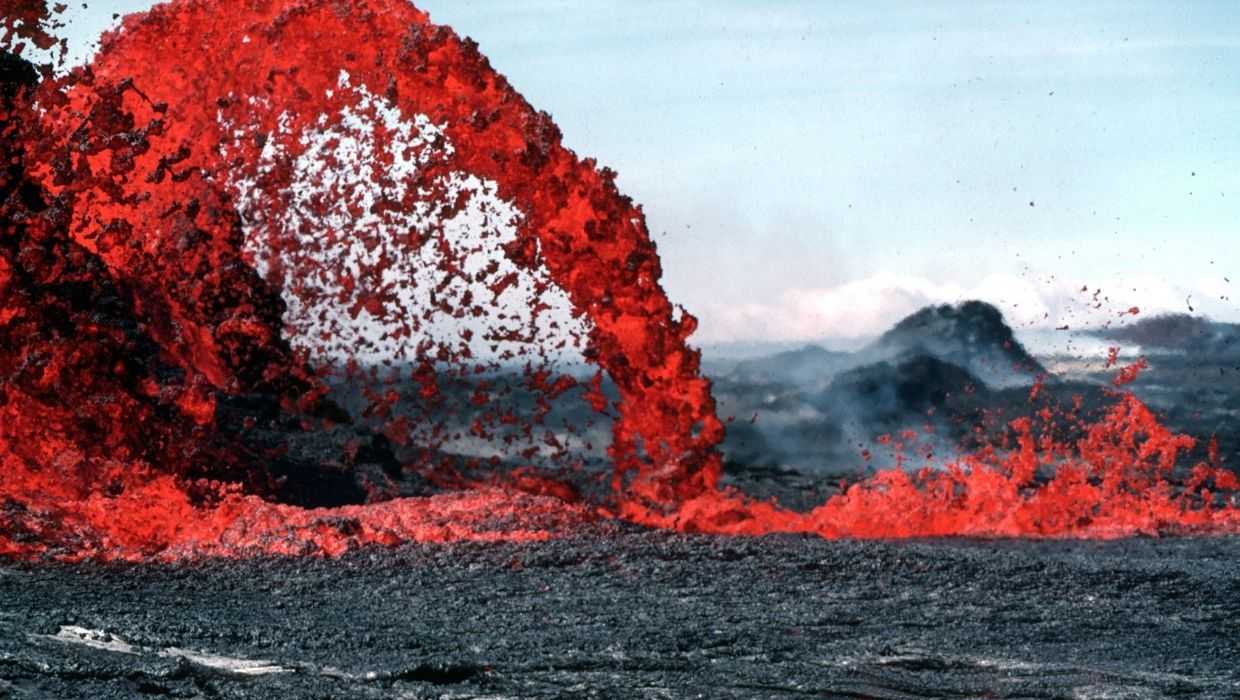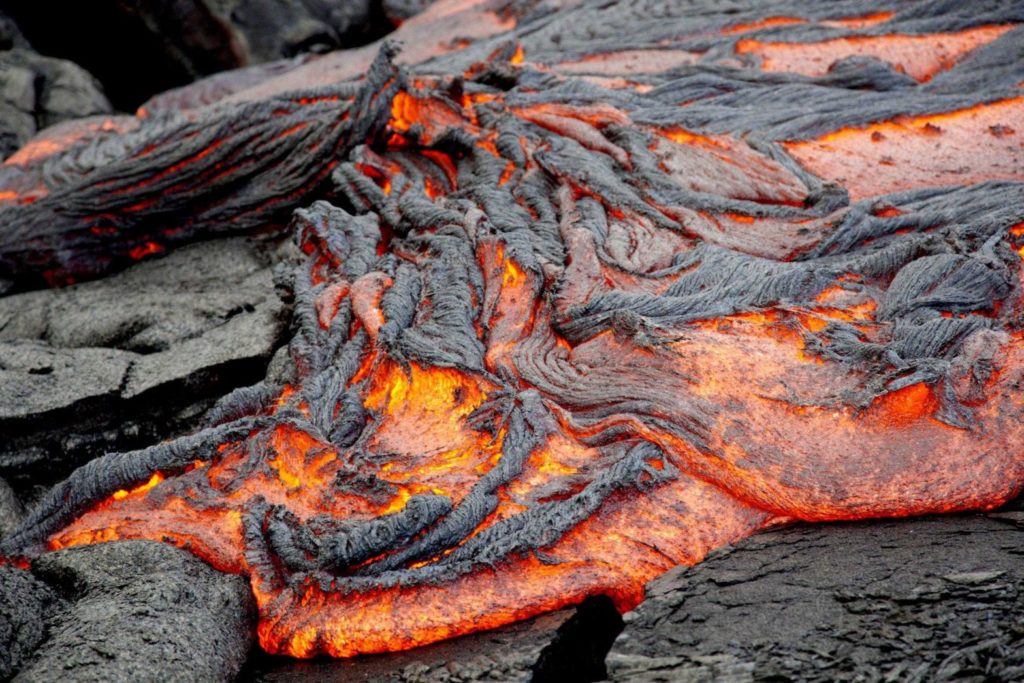Lava is molten rock, formerly magma (once still inside the earth), that flows on the surface of the earth. There are 3 main types of lava and they are pahoehoe, a’a, and pillow lava.
Contents
What Are The Three Main Types of Lava?
There are three types of basalt lava flows: pillow, pahoehoe, and a’a.The two primary types: pahoehoe (pronounced ‘paw-hoey-hoey”) and aa (pronounced “ah-ah”). Both names, like a number of volcanological terms, are of Hawaiian origin. The third type, pillow lava, forms during submarine eruptions.
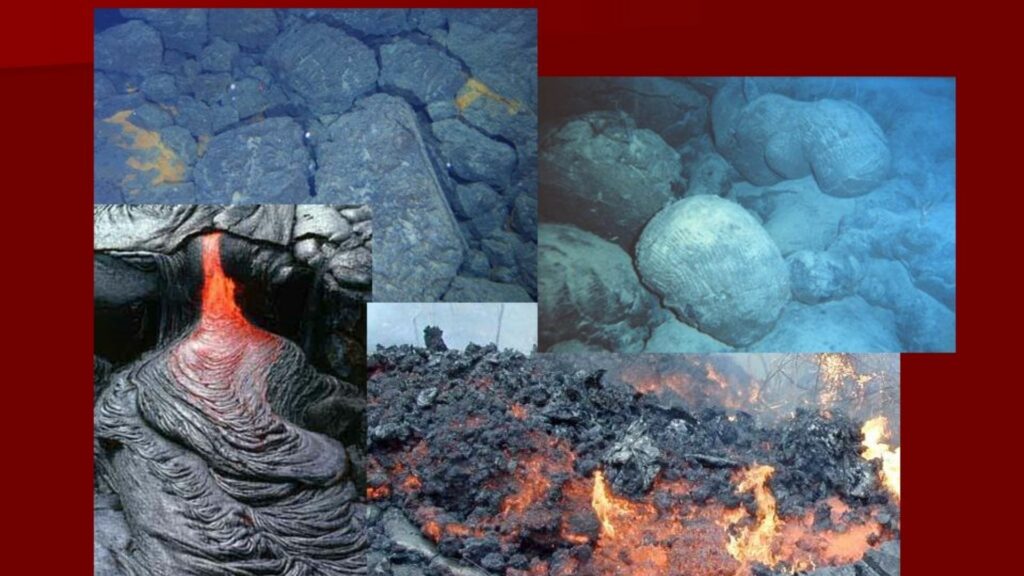
A’a Lava
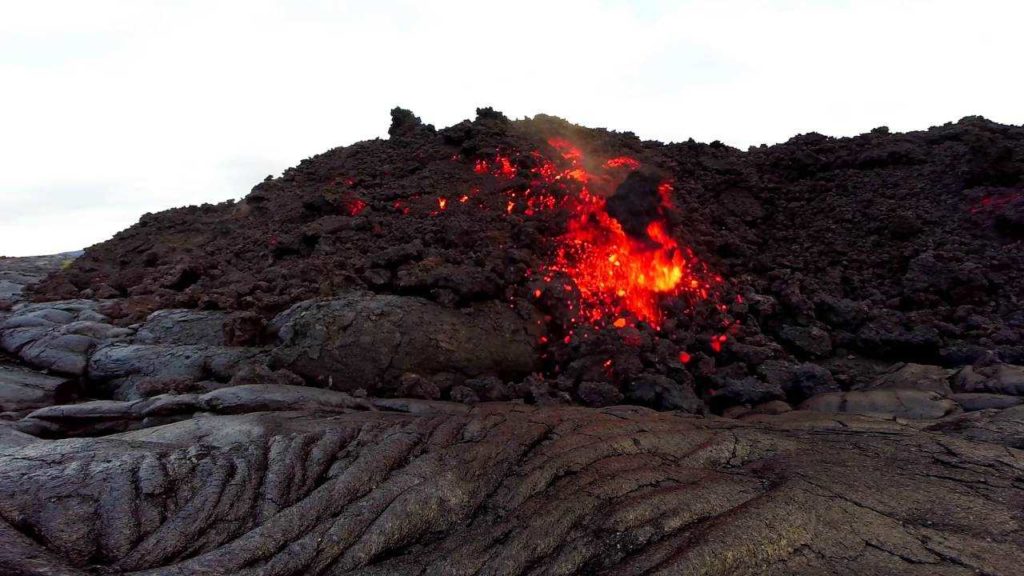
A’a lava types occur when lava flows swiftly. Under these conditions, there is accelerated heat loss and a resulting rise in viscosity. When the solid surface crust is torn by differential flow, the underlying lava is unable to run sufficiently fast to repair the tear. Thus, bits of the crust tumble in and are coated by still liquid lava, forming chunks.
ʻAʻā is one of three basic types of flow lava. ʻAʻā is basaltic lava characterized by a rough or rubbly surface composed of broken lava blocks called clinker. The Hawaiian word was introduced as a technical term in geology by Clarence Dutton.
https://en.wikipedia.org/wiki/Lava#%CA%BBA%CA%BB%C4%81
Pahoehoe Lava
This type of lava is thin and gooey-like. Pahoehoe occurs when lava flows more slowly. In these conditions, a well-developed surface forms, which prevents heat loss.
If a tear in the skin does form, it is easily repaired. Both magma discharge rate and the steepness of the slope over which the lava flows affect the flow rate.
Pahoehoe lava is a common type of basaltic lava that cools down forming typical smooth, billowy, or ropy surfaces. Often, it forms by many small breakouts of lava from an over-crusted inflating flat, irregular flow.
Pahoehoe lava. Photos and brief explanation.
Pillow Lava
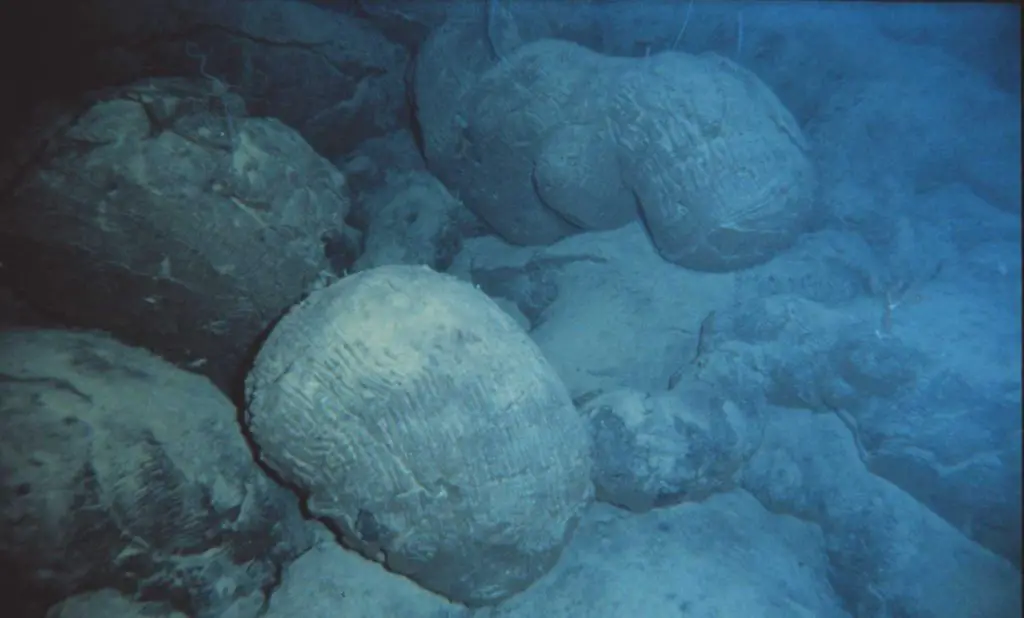
Pillow lava forms during submarine eruptions. When the lava makes contact with water and cools, it forms hard rounded shells.
Pillow lavas are lavas that contain characteristic pillow-shaped structures that are attributed to the extrusion of the lava under water, or subaqueous extrusion. Pillow lavas in volcanic rock are characterized by thick sequences of discontinuous pillow-shaped masses, commonly up to one metre in diameter.
https://en.wikipedia.org/wiki/Pillow_lava
What Is Thick Lava Called?
Lava takes two recognizable forms: fast-flowing, ropy lava, called pahoehoe, and thick, blocky lava, called aa.
Did you know that some caves are formed within a solidified lava flow, previously occupied by flowing molten lava? These types of caves are called lava tubes. Some can be several feet wide! For related information, read about the different types of magma and the different types of volcanoes.
References:
- Awesome A’A Lava Videos for Your Viewing Pleasure – Scientific America
- Lava Types – GALAPAGOS GEOLOGY ON THE WEB
- lava | Definition, Types, Composition, & Facts | Britannica
- Types of Lava Flows – Sandatlas
- Lava Flows – University of Massachusetts
- USGS: Volcano Hazards Program Glossary – AA – https://volcanoes.usgs.gov/vsc/glossary/aa.html
- USGS: Volcano Hazards Program Glossary – PAHOEHOE – https://volcanoes.usgs.gov/vsc/glossary/pahoehoe.html
- USGS: Volcano Hazards Program Glossary – Pillow lava – https://volcanoes.usgs.gov/vsc/glossary/pillow_lava.html
